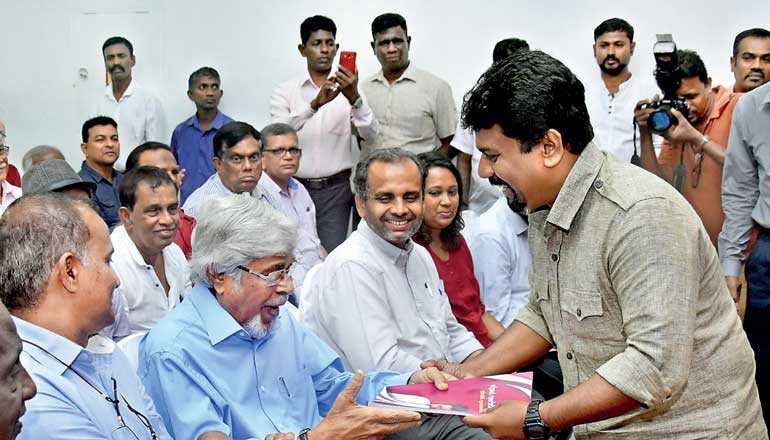A Closer Look at NPP’s Manifesto: The Good, the Bad, and the Downright Ugly

As election season heats up, political parties are rolling out their manifestos, each promising a brighter future. Among them, the National People’s Power (NPP) has unveiled a platform that, at first glance, offers a blend of hope and concern. Murtaza Jafferjee, a leading economist and Chair of the Advocata Institute, shares his thoughts on the manifesto’s strengths, weaknesses, and potential pitfalls.
The Good: Ambitious and Forward-Thinking
Jafferjee acknowledges that much of the NPP’s manifesto is aspirational, with many proposals aligning with sound economic principles. He commends their emphasis on pro-trade policies, including the pursuit of new trade agreements, improving the business environment, enhancing tax administration, promoting transparency, and encouraging public-private partnerships (PPPs). These initiatives, if implemented effectively, could boost market efficiency, reengineer outdated processes, and accelerate digitization—steps that are critical for modernizing Sri Lanka’s economy.
The Bad: Banking on a New Development Bank

However, Jafferjee raises concerns about some of the NPP’s proposals. For instance, the idea of establishing a new development bank is met with skepticism. Sri Lanka, he argues, is already “overbanked,” with too many financial institutions operating at suboptimal scales. Instead of adding another player to the crowded banking sector, Jafferjee suggests consolidating existing institutions to leverage economies of scale, reduce intermediation costs, and enhance their capacity to absorb risk. He also cautions against the government’s involvement in recapitalizing state banks, advocating instead for tapping into private capital markets to boost their capital base, which would also improve governance.
The Ugly: Threats to Fiscal and Monetary Stability
The most alarming aspects of the NPP’s manifesto, according to Jafferjee, lie in its fiscal and monetary policy proposals. He expresses deep concern over four specific areas:
Interest Rate Stabilization: Jafferjee finds the proposal to stabilize policy interest rates vague and potentially dangerous. He underscores the importance of the new Central Bank law, which mandates a focus on price stability and prohibits monetary financing (money printing). Any attempt to undermine the Central Bank’s independence, he warns, would be a grave mistake, jeopardizing the sound money that the law is designed to protect.
Foreign Exchange Act Amendments: The NPP’s plan to amend the Foreign Exchange Act to force exporters to repatriate earnings is based on a flawed premise, Jafferjee argues. The real cause of Sri Lanka’s forex crisis, he asserts, is not unreturned export proceeds but loose fiscal and monetary policies that led to excessive consumption and investment. Rather than focusing on exporters, the government should address these underlying issues.
VAT Meddling: Jafferjee is equally critical of any plans to tamper with the VAT system. He argues that VAT, being the least distortionary tax, is crucial for maintaining fiscal stability. Exempting more items from VAT would not only reduce government revenues but also distort market dynamics, ultimately hurting the economy.
Raising the Tax-Free Threshold: Doubling the tax-free threshold from Rs 100,000 to Rs 200,000 might seem like a relief for taxpayers, but Jafferjee warns that it would disproportionately benefit affluent households while reducing the government’s direct tax revenue. In a time when increasing direct taxation is essential for economic stability, this move could be counterproductive.
Final Thoughts: The Need for Caution in a Promised Brighter Future
As Sri Lanka looks to the future, Jafferjee cautions against revisiting the debt sustainability analysis, warning that higher GDP growth projections could reduce the country’s debt relief—exactly the opposite of what is needed. In this critical period, he urges all political parties to let sleeping dogs lie and focus on maintaining the hard-earned fiscal and monetary stability.
In sum, while the NPP’s manifesto contains promising ideas, it also presents significant risks. As Jafferjee suggests, the devil is in the details, and careful consideration is needed to ensure that well-intentioned policies do not lead to unintended consequences.







